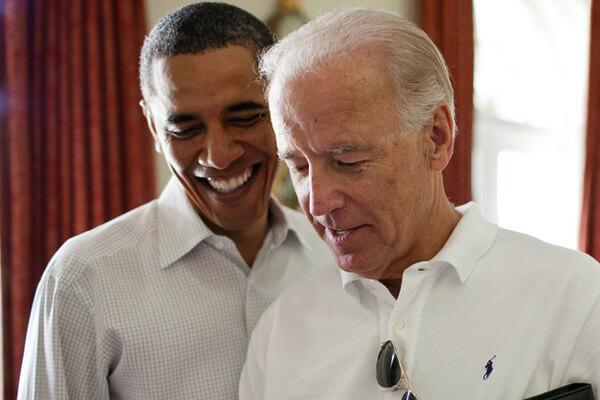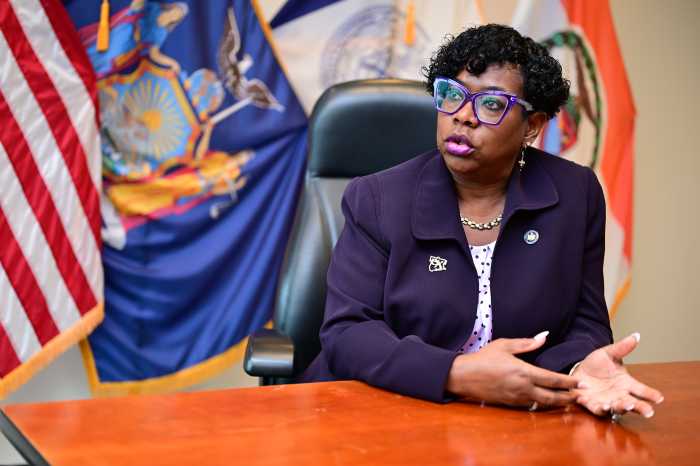A great hijacking has begun to rob President Barack Obama of a narrative that credits his idealism in his support for marriage equality.
One reason the hijacking gained traction is a false notion of what idealism is. Simply put, many feel that if something is heartfelt, it shouldn’t be tarnished by calculation. That places an impossible burden on the rational thinker, much less a leader seeking reelection.
Doubting such a leader’s sincerity can be toxic, reinforcing widespread cynicism. Does Barack Obama really believe in gay rights? Wasn’t it only self-interest and not his convictions at play?
The mainstream media didn’t lead with this interpretation, but I hear it in conversations with my friends, who remain tempered in their enthusiasm, even suspicious, especially the youngest among them. A New York Times poll found that 67 percent of respondents doubted his good faith in his gay marriage evolution.
But evidence from Obama’s record points in a different direction — he made his decision because of his beliefs, his ideology. No president in US history has been as friendly to the LGBT community.
Granted that he was pushed, but the pressure on him was largely fueled by an increasingly impressive record of progress. Ending Don’t Ask, Don’t Tell, whatever others may say, truly was an initiative orchestrated by the president, who enlisted the cooperation of the Department of Defense. His Justice Department’s refusal to support the Defense of Marriage Act leaves the Republican House of Representatives to defend in court the law that prohibits the federal government from recognizing legal same-sex marriages.
On Obama’s watch, the nation has also enacted a hate crimes law that protects the LGBT community; his administration has initiated federal government policies protecting transgender Americans; the president has ordered essentially all hospitals to grant visitation to same-sex partners; and his Affordable Care Act opens up medical care to all LGBT people.
And these achievement by no means exhaust the list.
Based on this record, it is clear the president is a believer. Not only a believer, he takes risks and works to reduce the likelihood of backlash against LGBT initiatives. Obama’s decision to back marriage equality is a leap into the unknown. No one can be certain it will help his reelection. The first Gallup tracking poll after his announcement found the president losing support, and it pushes evangelical Christians more willingly into Mitt Romney’s camp. Right-wing religious leaders who had supported Rick Santorum in the Republican primaries were quick to shift their support to the former Massachusetts governor, as the president’s move overshadowed lingering GOP discord.
The bottom line: When it came time to decide a tough call, Obama made the idealistic choice.
Idealistic yet rational, the president’s announcement fits into a grand strategy of making the election a choice between a good man and a hardnosed businessman with a streak of cruelty. Romney wants to turn the election into a referendum on the economy alone. Marriage equality reminds many Americans that they are comfortable with the president’s character.
Barack Obama offered personal reasons — heartfelt reasons — for abandoning the civil union compromise that had been the national Democrats’ consensus position for the past decade. He is friends with couples in committed relationships; he sends his daughters to a school where they have friends who have same-sex parents. His evolution was guided by his Christianity, he said.
The president told Democrats unhappy with his decision, especially in swing states and districts that could easily go Republican, that his stance allows them to draw a critical distinction with their opponents. Romney supports a federal constitutional amendment prohibiting marriage equality in all 50 states. Democrats, showing unity, can remind voters how their election reversals of two years ago emboldened a right wing pushing the Republican Party toward reactionary policies.
Financial backing for the president’s reelection showed an immediate bump, but there is no way to tell yet how voters in battleground state like Florida, Nevada, Ohio, or Colorado may factor the president’s decision into their choice in November. Months before the election, it is impossible to predict whether the president has helped or hurt the cause of liberalism. But he will no longer be damned for evading the issue.
The pressure from the LGBT community and that generated by Vice President Joe Biden’s May 6 comments on “Meet the Press” succeeded because the president could no longer contain the contradictions of his own position and in his own conscience. In his interview with ABC’s Robin Roberts, he said, “I asked myself right after that New York vote… if I had been a state senator how would I have voted? And I had to admit … I would have voted yes.” The time had come to move from civil unions to full equality for LGBT couples.
It’s certainly true there was a carefully orchestrated campaign to move the president, that the LGBT community and its friends are important cogs in his fundraising machine, and that they weren’t shy about making their wishes known. The community deserves credit for pressing the issue in an election year, but the campaign was effective because the president was receptive and ready.
In the end, the president’s position may prove not that difficult politically. Obama voters differ on same-sex marriage, but they are unlikely to change their vote based on that disagreement. What used to be a Republican wedge splitting Democrats has become at worst a neutral matter of opinion to likely supporters of the president. The announcement may yet turn out badly, but it has at least an equal chance of going well, defining Barak Obama as a pragmatist with a clear and compelling idealist bent.































